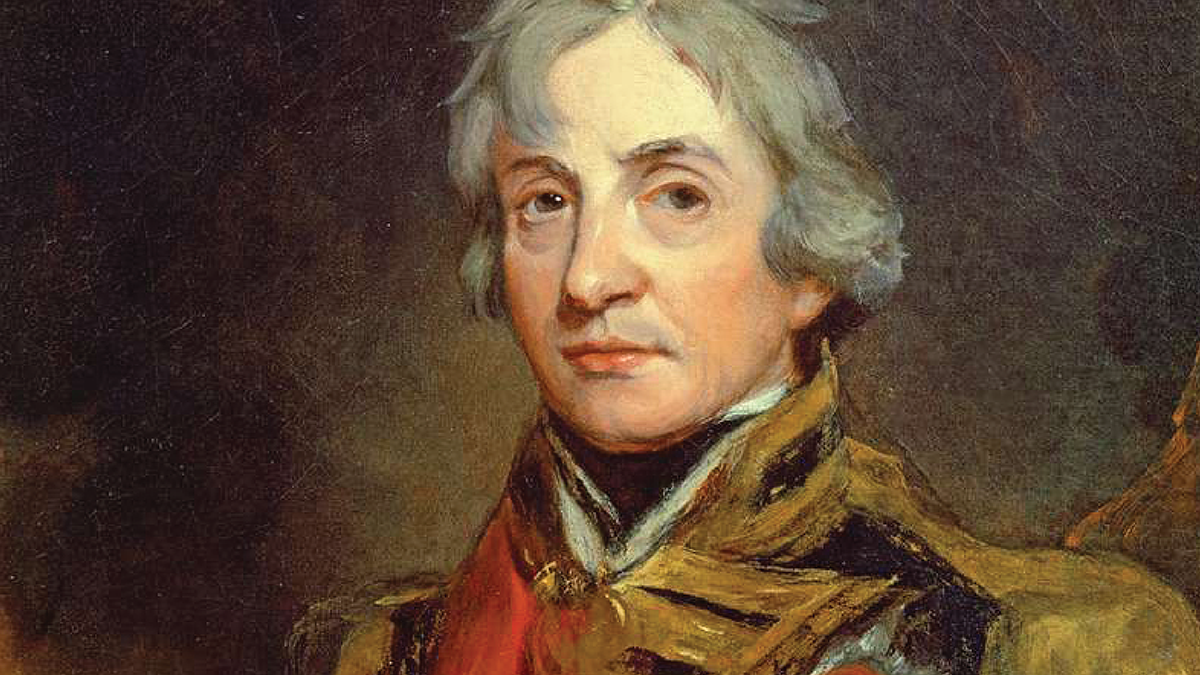You are viewing 1 of your 3 articles before login/registration is required
Turning a Blind Eye
Horatio Nelson’s monocular status is just one of the questionable aspects about the naval commander’s history.
Our colleagues over at The Ophthalmologist are currently running a series on one-eyed military heroes. The latest installment features Horatio Nelson, perhaps the most celebrated naval commander in British history.
Old Horatio is famously commemorated in London, standing atop a 169-foot column in Trafalgar Square. Aside from losing his right arm at the Battle of Santa Cruz de Tenerife, he sustained many other wartime injuries – the most notable being the loss of vision in his right eye at the Siege of Calvi in 1794. And he appears to have made the most of his monocular status. At Copenhagen in 1801, responding to an order from Vice-Admiral Hyde Parker to retreat, Nelson held his telescope to his blind eye, remarking, “I really do not see the signal.” Defying Parker’s order, Nelson attacked and won the battle. It’s a tale believed to be the etymological origin of the phrase “to turn a blind eye.”
However, some historians question the veracity of Nelson’s eye injury. No such injury was included in the official reports filed after the Siege of Calvi and, perhaps most compellingly, sculptures of Nelson generally feature an apparently “normal” right eye in their depictions. Of course it’s possible that Nelson suffered major trauma that nonetheless left him with a normal-appearing right eye. But, given his celebrity-like status in 19th-century England, it’s not difficult to imagine him exploiting a minor eye injury to solidify his reputation as a heroic naval commander.
This leads us to consider another oft-repeated “fact” about the famed commander – “Kiss me, Hardy,” his famous dying words to Captain Thomas Hardy. Some contend that this deathbed declaration could actually have been “kismet”, derived from the Arabic “qismah” and meaning “fate,” while others tend towards the theory that “platonic kissing” between men was commonplace at the time.
And then there is the tendency for the popular view to pass over Nelson’s documented pro-slavery, anti-abolitionist views. This reminds us that, while stories about lost eyes and stolen kisses are amusing enough, there are less palatable aspects of Nelson’s past to which history also turns a blind eye.
The New Optometrist Newsletter
Permission Statement
By opting-in, you agree to receive email communications from The New Optometrist. You will stay up-to-date with optometry content, news, events and sponsors information.
You can view our privacy policy here
Most Popular
Sign up to The New Optometrist Updates
Permission Statement
By opting-in, you agree to receive email communications from The New Optometrist. You will stay up-to-date with optometry content, news, events and sponsors information.
You can view our privacy policy here
Sign up to The New Optometrist Updates
Permission Statement
By opting-in, you agree to receive email communications from The New Optometrist. You will stay up-to-date with optometry content, news, events and sponsors information.
You can view our privacy policy here









